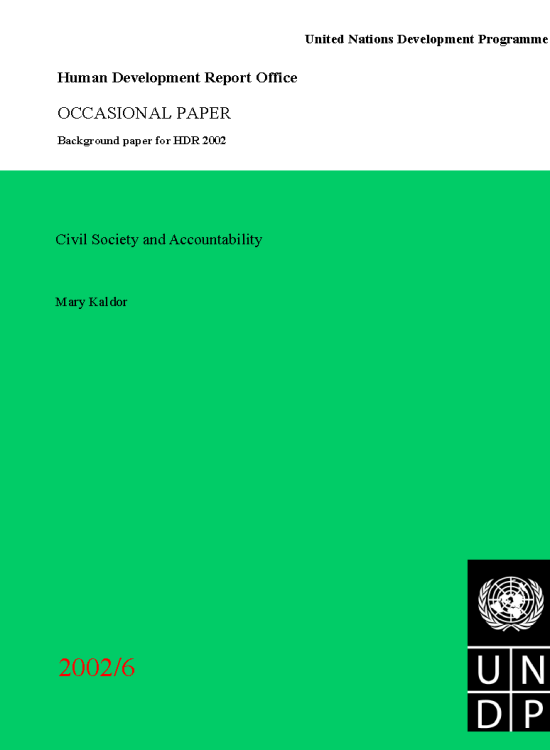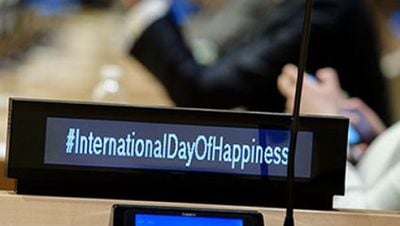Civil Society and Accountability

Download Report by Language
Document
kaldor2002.pdf
(261.28 KB)
Citation
Kaldor, Mary. 2002. Civil Society and Accountability. New York.
Civil Society and Accountability
Posted on: January 01, 2002
It is a paradox of the contemporary period that, at a time, when more and more states all over the world have adopted democratic forms and procedures, there is decreasing trust in elected officials and politicians. This lack of trust is reflected in growing political apathy, declining membership in political parties, and low voter turn out in elections. At the same time, however, there appears to be more trust in civil society groups, which are often, wrongly in my view, equated with Non-Governmental Organisations (NGOs). These groups, which are supposedly independent of the state and of big companies, are not elected; they are voluntary groups composed of committed individuals. They have become much more publicly prominent in the last decade and are often seen as the expression of public morality. This paper is about whether this trust is justified in relation to the world’s poorest people. I shall use the term moral accountability to refer to the responsibility of civil society groups and individuals, concerned with relief and development, towards the people they are trying to help. This sort of accountability is sometimes described as political responsibility (Jordan and Tuijl) or as external accountability (Anheier). By procedural accountability, I mean the formal mechanisms adopted by civil society groups for management purposes. This kind of accountability involves responsibility towards stakeholders - donors, boards or trustees, members or supporters, staff, as well as clients. Thus moral accountability is roughly equated with political and external accountability, while procedural accountability can be equated with management or internal accountability.

